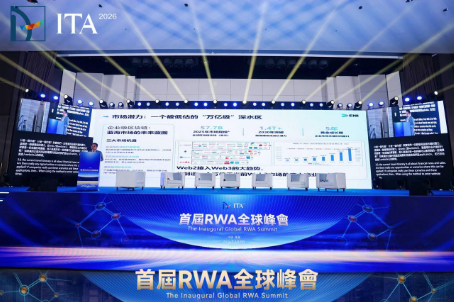CF40 Research Institute published an article titled "The 'Politicization' of Cryptocurrencies," which revealed that the continued penetration of the cryptocurrency industry into "money politics" has attracted widespread attention since the end of the 2024 US presidential election, which saw Trump's victory. American scholar Vitaliy Katsenelson suggested that as the market's sentiment towards the US dollar has been disturbed, the promotion of Bitcoin by the White House may shake people's trust in the US dollar as the global reserve currency, thus weakening its position. As for the current fiscal challenges, "what can truly keep the United States great is not Bitcoin, but control of debt and deficits."
Welcome Back
Click “Sign in” to agree to Cointime’s Terms of Service and acknowledge that Cointime’s Privacy Policy applies to you.
Join CoinTime
Already have an account?
Click “page.Sign up” to agree to Cointime’s <a class="underline" href="#term-of-service">Terms of Service</a> and acknowledge that Cointime’s a class="underline" href="#privacy-policy">Privacy Policy</a> applies to you.
Sign in with email
Sign up with email
Your email
Check your inbox
Click the link we sent to to sign in.
Click the link we sent to to sign up.
US scholar: White House's promotion of Bitcoin may shake people's trust in the US dollar as the global reserve currency
-
Wechat scan to share
Recommended for you
-
Nivex直播间 ·
From Explosive Narratives to Long-Termism — The Next Phase of Web3 Will Be Harder, but Healthier
On January 28, 2026, Cointime hosted an AMA titled “From Explosive Narratives to Long-Termism — The Next Phase of Web3 Will Be Harder, but Healthier... -
Verifiable Economic Infrastructure for the AGI Era
Co-Building a Decentralized Network of Intelligent Contribution -
DID 2049 ·
OPENSCI | Rebuilding the Value Cycle of Basic Science through DeSci
OPENSCI: Fixing the Value Fracture with Blockchain in Basic Research and DeSci Solutions -
Bitcoin bulls spot bottoming signs as longtime bears take victory laps
The Financial Times and Peter Schiff were among the no-coiners giving themselves pats on the back as crypto crashed this week. -
$44B bitcoin blunder puts South Korea regulators on alert over local crypto exchanges
The watchdog said it plans to build tools that automatically extract suspicious trading patterns by the second and minute.
Daily Must-Read
-
Nivex Lists XAUT: Moving Beyond Single-Asset Portfolios to Build an AI-Powered Matrix of US Stocks and Safe-Haven Assets
-
$44B bitcoin blunder puts South Korea regulators on alert over local crypto exchanges
-
Rodeo becomes 2nd NFT platform to announce closure this week
-
Ethereum Foundation makes post quantum security a top priority as new team forms
-
UK finance watchdog nears final consultation step on key crypto rules
-
Solidify Chain: The Security Path from Inflation Incentives to Cash-Flow Coverage











All Comments